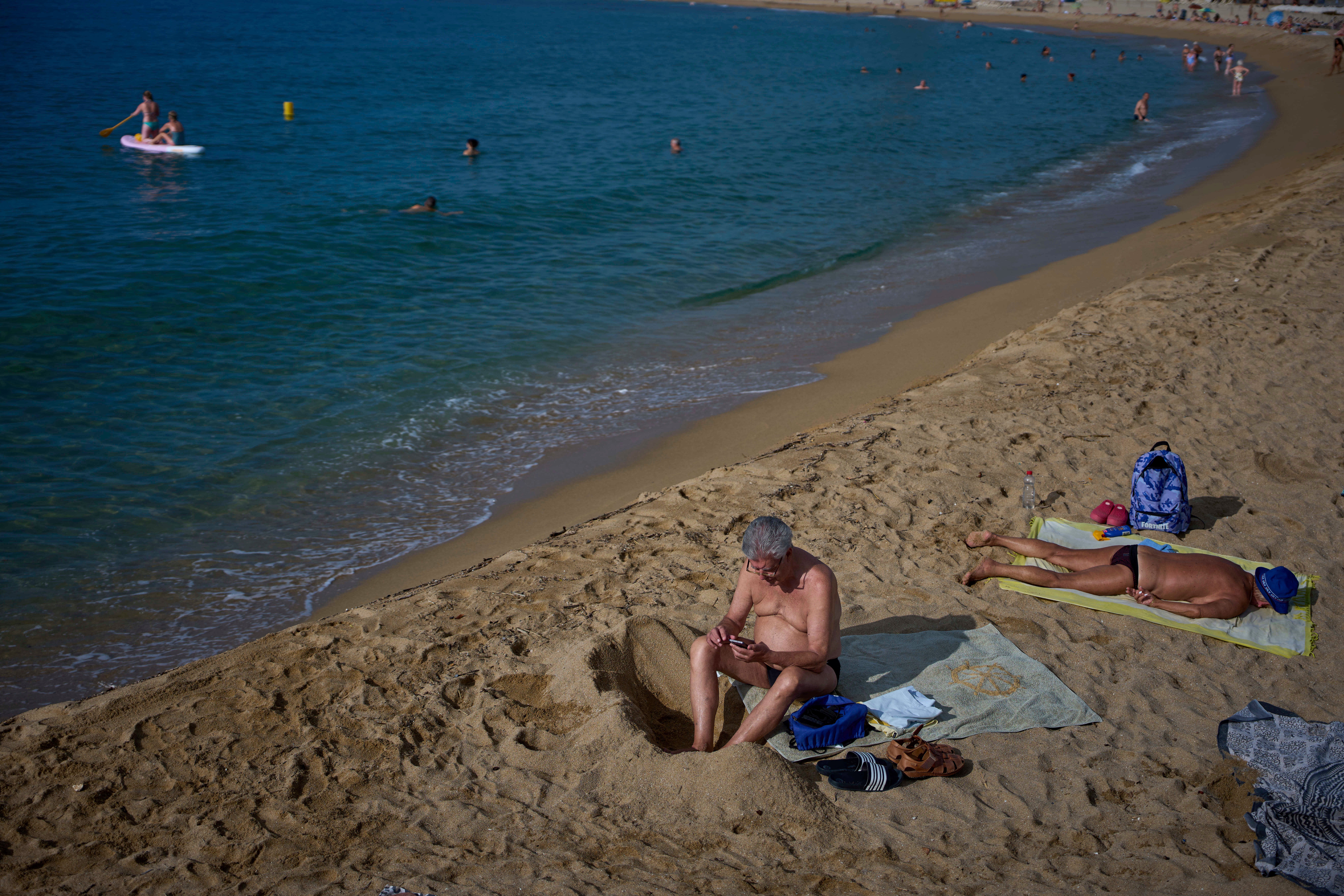Ana García rents a shack at a beach just north of Barcelona every year, spending two months there in the summer with her daughter. But García fears summers by the sea in Montgat, about a 30-minute drive from central Barcelona, eventually could be numbered.
Storms and sea level rise driven by climate change are eroding the man-made beaches in metropolitan Barcelona, with the sea swallowing swathes of coastline every year, authorities say. Compared to natural coastlines, man-made beaches erode faster. Montgat’s coastline has eroded especially fast, locals and authorities say.
“Clearly, this is worrying,” García said. “Because it’s increasing more and more, and shows no signs of stopping. Our coexistence with the sea here is in danger.”

The fishing town turned summering spot is no stranger to change. Fishing was once the main economic activity in the “Maresme,” or marshlands, north of Barcelona, but everything changed in 1986 when Spain‘s second-largest city was named host of the 1992 Olympic Games.
Where once there were just rocks, breakwaters and thin stretches of sand, several new beaches were constructed, helping turn the city into one of Europe‘s premier tourism hotspots.
Climate change is threatening that transformation in small coastal towns like Montgat by intensifying storms that erode coastline and driving sea-level rise.
While authorities have responded by replacing the lost sand and building some breakwaters, the efforts haven’t kept pace with the coastline’s erosion.
Ramon Torra, manager of Barcelona’s Metropolitan Area, acknowledges that simply adding more sand isn’t enough.
“What we must do first isn’t just replenish the sand, but rather stop the loss of it,” Torra said. “In the case of the ‘Maresme’ region here, we are talking about structures such as breakwaters because they confine the beach.”
Europe is the world’s fastest-warming continent, with temperatures increasing twice as fast as the global average since the 1980s, according to the European Union’s Copernicus Climate Change Service.
As the planet warms, sea levels rise largely due to the melting of glaciers and the thermal…
Click Here to Read the Full Original Article at The Independent Travel…
